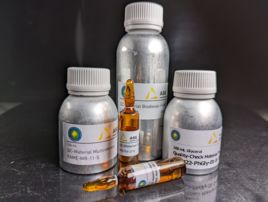Biodiesel - a quality fuel with a future
The Association Quality management Biodiesel (AGQM) held its 5th "Biodiesel" International Conference on 6th and 7th October 2011 with lectures on the political framework, the conditions for marketing Biodiesel, quality aspects and the motor vehicle engineering requirements for meeting exhaust standards. The organiser's expectations were met with more than 80, above all foreign, attendees. The development of the US market, the European market and the global market for Biodiesel were compared and sales perspectives were shown. For instance, the difficulties suffered by the Spanish Biodiesel industry were presented to demonstrate the negative influence of Argentina's and Indonesia's export practices. In Spain, only 17 % of the Biodiesel production capacity is used.
The further development of the quality of Biodiesel came across as altogether positive. In the context of the current development of the European standard for Biodiesel - EN 14214 - the results of an extensive study evaluating the metal content and the content of the "catalytic converter poison" phosphor were also presented. The study came to the conclusion that compared to the actual source, engine oil, contamination through exhaust gas aftertreatment systems using these elements was relatively low.
The conference however also dealt with critical questions and requirements regarding high-quality storage and transport of Biodiesel – "Good Housekeeping" – to avoid microbial contamination.
The results of three projects were presented dealing with the topic of steryl glycosides. Steryl glycosides are natural ancillary components occurring in vegetable oil, which are suspected of triggering filtering problems for fuel blends (B7). It was shown that when using refined vegetable oils for the manufacture of Biodiesel, only few mg/kg of steryl glycosides are contained in Biodiesel, so that there is no risk in terms of using it as fuel.
The attendees of the conference also proved very interested in the "no harm" research regarding antioxidants carried out by AGQM. These tests are an important contribution to Biodiesel quality assurance.
With regard to the usage of Biodiesel for motor vehicles, topics such as compliance with exhaust standards, compatibility with exhaust gas aftertreatment systems and engine optimisation opportunities were the main focus. PSA Peugeot Citroen supports the introduction of a higher proportion of Biodiesel and stresses that under certain conditions, engines using a proportion of Biodiesel can run on up to 30% Biodiesel (B30).
Currently, the use of Biodiesel as a blending component for heating oil is being studied in terms of its long-term stability as well as in field studies. The Biodiesel industry is hoping to open up a broader sales market as a result of these projects.
The lectures presented at the conference are available for a fee.





